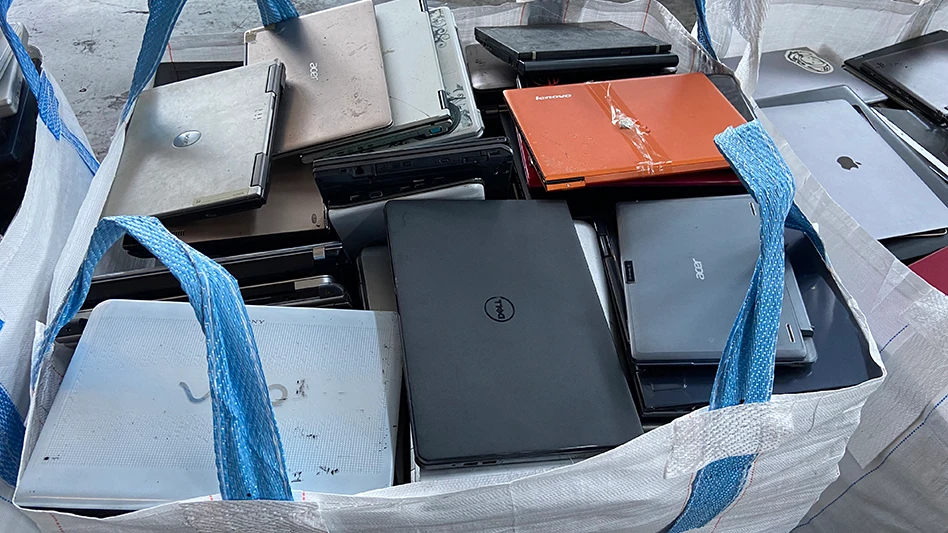 At a legal firm, the records manager discovered one of a company’s worst nightmares: mold in one of the records rooms containing active case files. Being in a business that helps people with personal matters and where privacy and security is of utmost importance, one can only imagine the types of confidential documents that might be stored in a law firm. Documents containing sensitive information, such as Social Security numbers, bank account numbers and passport numbers, were rapidly being contaminated and potentially destroyed permanently by mold.
At a legal firm, the records manager discovered one of a company’s worst nightmares: mold in one of the records rooms containing active case files. Being in a business that helps people with personal matters and where privacy and security is of utmost importance, one can only imagine the types of confidential documents that might be stored in a law firm. Documents containing sensitive information, such as Social Security numbers, bank account numbers and passport numbers, were rapidly being contaminated and potentially destroyed permanently by mold.
Fortunately, a call to the Document Recovery Services division team of North Andover, Massachusetts-based Polygon prevented this law firm from experiencing an even greater disaster and allowed the firm to restore all of its damaged records on site in an expert manner, but most importantly, securely.
The discovery
In August 2014, a legal firm, which houses thousands of confidential documents that need to be handled with extreme care in a secure environment, detected mold in one of its below-ground records rooms where critical documents are kept. These documents contain private personal information (PPI), which federal and state laws and regulations require to be protected. To add to the urgent situation, this particular room is where active case records are filed and accessed by various lawyers, paralegals and counsel. The mold was quickly spreading and causing more extensive damage daily.
Realizing the seriousness of the situation, the law firm called Polygon for assistance, as the firm was aware of the recovery services company’s reputation for being reliable, trustworthy and professional. The law firm knew its vendor would be vital in helping restore the damaged documents in a secure way.
Polygon received the call regarding the mold infiltration and met with the records manager the next day. When working in situations dealing with mold, fast remediation is imperative. Rob Schmidt, of Polygon’s Document Division, inspected the mold-infested areas and learned that the contamination was in excess of 4,500 linear feet and covered multiple areas, more than what was originally discovered by the records manager. It also was noted that the documents damaged by the mold were in heavier concentration near the HVAC duct work. During Schmidt’s investigation of the damage, and because of his extensive experience, he quickly realized that the mold was being caused by an underlying humidity issue within the building itself. The problem stemmed from the HVAC duct work and that issue would need to be addressed once the mold was removed and the documents restored.
Schmidt went to the law firm to understand what the issues were and to evaluate the scope of the project. He also needed to see how the mold problem was affecting the law firm’s day-to-day business, determine if there were any special requirements the law firm had and collect information for the estimate.
One of the law firm’s requests was that the work be performed on site. The client documents stored in the records room contained PPI and often were referred by staff and couldn’t be removed from the office. The documents contained sensitive information that made it legally imperative that they be housed on site in a secured environment, according to the law firm. In addition to security reasons, the legal team needed quick access to the documents for active cases. Many of the legal documents require signatures and are not available digitally, so the paper originals often are referenced.
An estimate was provided the next day in light of the aggressive daily growth rate of mold. Within two days of the law firm giving the go-ahead for the job, the recovery services company was on site and setting up equipment for the mold remediation.
The solution
Polygon came on site and set up a separate air-tight containment area designed to ensure there was no cross-contamination of mold spores, which otherwise could have spread to other records rooms within the building. Inside the records room, air scrubbers and HEPA air filtration vacuums were set up to get rid of mold spores. Dehumidifiers were set up to prevent any future mold outbreaks because of the higher moisture level in the air from the faulty HVAC duct work.
Having a process for handling damaged documents, especially ones that are active and confidential, is crucial. With its vendor’s experience and expertise, the law firm could methodically inventory all of its stored documents and keep them in the correct order while they were cleaned and then returned to their original locations.
The results
Understanding the law firm’s needs, its vendor worked efficiently to solve the problem, knowing that a holiday weekend was approaching and the project needed to be completed as soon as possible. Polygon couldn’t risk having the mold infestation further damage the irreplaceable PPI-containing documents the legal team needed access to daily. The remediation firm was able to finish the project in fewer than 10 days and on site, which made the law firm feel more confident knowing where its documents were at all times.
 The client files were continuously stored in a secured environment that followed the legal regulations for housing client documents containing confidential information. The mold in the records room was completely eliminated, and Polygon had 100 percent recoverability of all the documents.
The client files were continuously stored in a secured environment that followed the legal regulations for housing client documents containing confidential information. The mold in the records room was completely eliminated, and Polygon had 100 percent recoverability of all the documents.
The records manager at the law firm told Schmidt, “It is very clear you have our best interest in mind,” when referring to the protocols and timing that Polygon suggested, all while keeping the documents in a secure location that could be accessed by the law firm’s legal team. This supports the vendor’s reputation of being reliable and responsive when eradicating mold.
When trying to remove mold, it is imperative that the damaged articles and structures are handled properly and quickly to minimize costly damage. Polygon says it also adhered to strict legal protocols mandated by the U.S. government to ensure that the documents that were being handled were kept in a confidential and secure environment.
In collaboration with the law firm, Polygon is providing valuable input regarding the current HVAC system and is helping the law firm make improvements to its building to prevent future problems in its records rooms.
This case study was submitted by Polygon Group, www.polygongroup.us, with North American headquarters in North Andover, Massachusetts.

Explore the November 2014 Issue
Check out more from this issue and find your next story to read.
Latest from Recycling Today
- Azek Co. acquires Oregon-based plastic recycler
- Ace Green Recycling inks lead, lithium licensing agreements in Armenia
- Call2Recycle partners to start high-energy battery recycling program
- Closed Loop Partners releases report on small-format packaging recovery
- Battery recycling and reuse management platform launches
- Elemental Holding secures European funding
- BCA subsidiary offers EV battery pack shredder
- Europe’s paper and board industry rebounds in 2024





